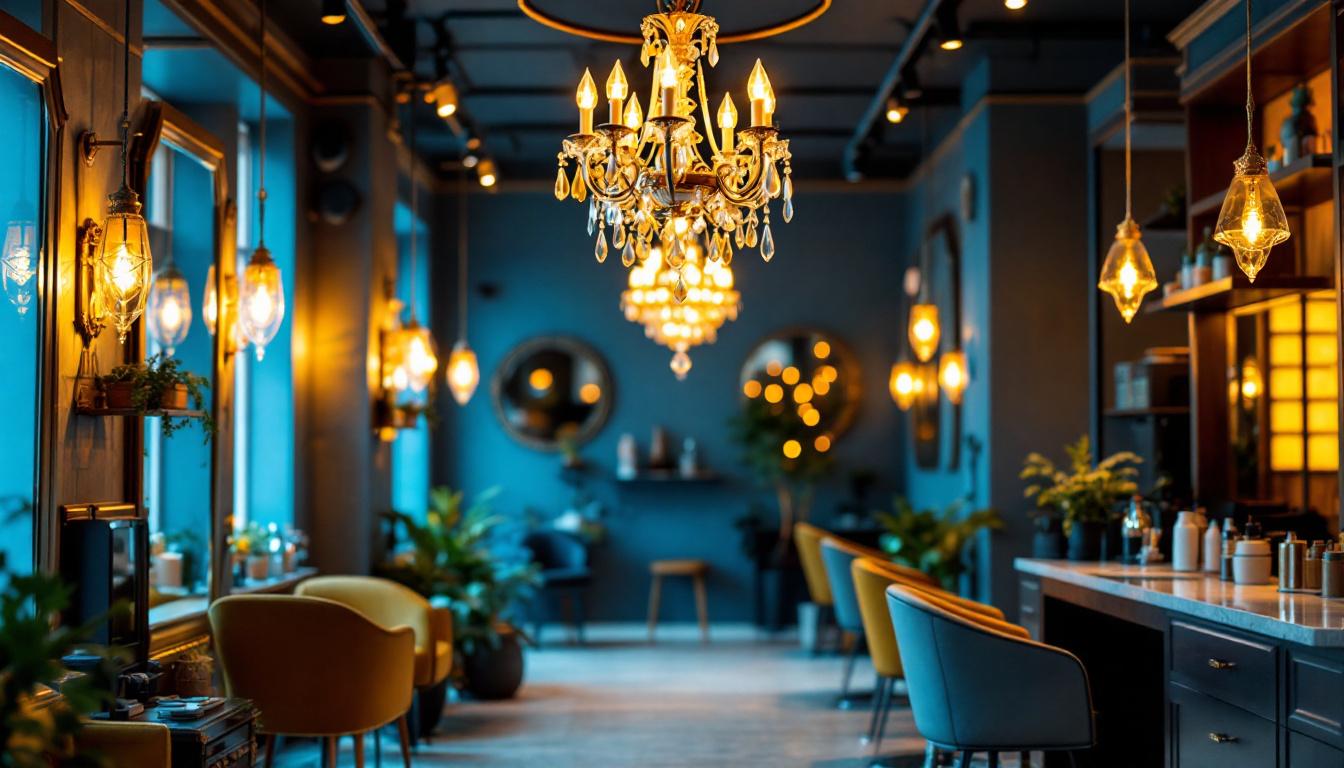
Arena lighting plays a pivotal role in the success of sporting events, concerts, and various large gatherings. For lighting contractors, understanding the nuances of arena lighting can be the key to winning more bids and securing lucrative contracts. This article delves into the importance of arena lighting, the technical aspects involved, and how contractors can leverage this knowledge to enhance their bidding process.
Arena lighting is not just about illuminating a space; it’s about creating an atmosphere that enhances the experience for both performers and spectators. Proper lighting can transform a simple event into a memorable spectacle, making it essential for contractors to comprehend its significance. The interplay of light and shadow can evoke emotions, guide the audience’s focus, and even influence the overall narrative of a performance, whether it’s a concert, sports event, or theatrical production.
Well-designed lighting can elevate the audience’s experience by highlighting key moments during events. Whether it’s a dramatic spotlight on a performer or ambient lighting that sets the mood, the right lighting can engage the audience and keep them captivated. For contractors, showcasing an understanding of how to manipulate light can set them apart from competitors. Furthermore, innovative lighting techniques, such as dynamic color changes or synchronized light shows, can create an immersive environment that resonates with attendees long after the event has concluded. This level of engagement not only enhances the immediate experience but also fosters a deeper connection between the audience and the performance.
In addition to aesthetics, safety is a paramount concern in arena lighting. Adequate illumination ensures that all areas are visible, reducing the risk of accidents. Contractors must emphasize their commitment to safety in their proposals, demonstrating how their lighting designs will enhance visibility while adhering to industry standards. Moreover, strategic lighting placement can help guide attendees during high-traffic moments, such as entry and exit points, ensuring a smooth flow of movement. Emergency lighting systems are also a critical component, providing essential illumination in case of power failures or emergencies, thereby reinforcing the contractor’s dedication to creating a secure environment for all participants.
As technology continues to evolve, so does the potential for arena lighting. Modern advancements, such as LED technology and smart lighting systems, offer contractors new tools to enhance their designs. LEDs not only provide energy-efficient solutions but also allow for greater flexibility in color and intensity, enabling dynamic lighting effects that can adapt in real-time to the performance. Additionally, smart lighting systems can be programmed to respond to audio cues, creating a synchronized experience that captivates the audience. Understanding these technologies and their applications can give contractors a competitive edge, allowing them to offer innovative solutions that meet the diverse needs of their clients.
Understanding the technical components of arena lighting is crucial for contractors looking to win bids. This knowledge not only helps in crafting effective proposals but also instills confidence in clients regarding the contractor’s capabilities. A well-informed contractor can effectively communicate the nuances of lighting technology, which can be a deciding factor in securing contracts. Furthermore, staying updated with the latest trends and innovations in arena lighting can position contractors as industry leaders, setting them apart from competitors.
There are various types of lighting fixtures used in arenas, each serving a unique purpose. From LED floodlights that provide powerful illumination to intelligent lighting systems that can change colors and patterns, contractors should be well-versed in these options. Highlighting the benefits of each type in proposals can demonstrate a contractor’s expertise and flexibility in meeting client needs. For instance, LED fixtures not only consume less energy but also have a longer lifespan compared to traditional lighting, making them a cost-effective choice in the long run. Additionally, the versatility of intelligent lighting systems allows for dynamic visual storytelling, which can enhance the atmosphere during events, whether it be a concert, sports game, or corporate function.
Modern arena lighting often incorporates sophisticated control systems that allow for intricate lighting designs. Understanding these systems can give contractors a competitive edge. By showcasing knowledge of how to program and operate these systems, contractors can assure clients that their events will have the desired lighting effects, enhancing the overall experience. Moreover, the integration of automation and remote control capabilities means that lighting can be adjusted in real-time, accommodating the spontaneous nature of live events. This adaptability not only improves the efficiency of the lighting setup but also ensures that the visual elements remain engaging and aligned with the event’s theme.
With increasing awareness of environmental sustainability, energy-efficient lighting solutions are more important than ever. Contractors should be prepared to discuss the benefits of energy-efficient fixtures, including cost savings and reduced environmental impact. Proposals that include energy-efficient options can appeal to clients looking to minimize their carbon footprint. Additionally, many energy-efficient lighting solutions qualify for rebates and incentives, further enhancing their appeal. By incorporating smart lighting technologies that adjust based on occupancy and natural light levels, contractors can help venues not only save on energy costs but also contribute to a more sustainable future. This proactive approach can resonate well with clients who prioritize corporate social responsibility and are eager to promote their commitment to sustainability in their marketing efforts.
To effectively win more bids, lighting contractors must adopt strategic approaches that highlight their expertise and understanding of client needs. Here are some strategies that can make a significant difference.
One of the most effective ways to win bids is to showcase previous successful projects. Providing case studies or portfolios that demonstrate a contractor’s ability to deliver exceptional lighting solutions can build trust with potential clients. Visual evidence of past work can be a powerful tool in persuading clients to choose a particular contractor.
Collaboration is key in the bidding process. Engaging with clients during the planning phase can help contractors better understand their vision and requirements. By offering insights and suggestions, contractors can position themselves as partners rather than just service providers, which can lead to a higher likelihood of winning the bid.
A well-structured proposal can make a significant impact on the bidding process. Contractors should ensure that their proposals are detailed, outlining not just the technical aspects of the lighting design but also the benefits it will bring to the event. Including timelines, budgets, and maintenance plans can further demonstrate professionalism and thoroughness.
To craft compelling bids, lighting contractors must have a deep understanding of their clients’ needs. This involves active listening and asking the right questions during initial meetings.
Every event has its unique goals, whether it’s creating a vibrant atmosphere for a concert or ensuring visibility for a sporting event. Contractors should ask clients about their specific objectives and tailor their proposals accordingly. By aligning their lighting solutions with the event’s goals, contractors can enhance their chances of winning the bid.
Understanding the client’s budget is crucial in the bidding process. Contractors should be prepared to offer a range of options that cater to different budget levels. This flexibility can demonstrate a contractor’s commitment to meeting client needs while also showcasing their ability to deliver quality solutions within financial constraints.
In today’s digital age, technology plays a significant role in the bidding process. Lighting contractors can leverage various tools and platforms to enhance their proposals and streamline communication with clients.
Design software can help contractors create visual representations of their proposed lighting solutions. By providing clients with 3D renderings or simulations, contractors can give a clearer picture of how the lighting will look in the arena. This visual aid can be a persuasive factor in the decision-making process.
Using online collaboration tools can facilitate better communication between contractors and clients. These platforms allow for real-time feedback and adjustments, making the bidding process more efficient. Contractors who embrace technology in their communication are likely to stand out in a competitive market.
Winning bids is not just about technical expertise; it’s also about building relationships within the industry. Networking can open doors to new opportunities and enhance a contractor’s reputation.
Participating in industry events, trade shows, and local meetups can help contractors connect with potential clients and other professionals in the field. Building a strong network can lead to referrals and collaborations that may result in more bids and contracts.
In today’s digital world, having a strong online presence is essential. Contractors should invest in a professional website and utilize social media platforms to showcase their work and engage with potential clients. Regularly sharing insights, project updates, and industry news can position a contractor as an authority in the field, attracting more bids.
Arena lighting is a complex yet rewarding field for lighting contractors. By understanding the importance of lighting, mastering technical aspects, and employing effective bidding strategies, contractors can significantly increase their chances of winning more bids. Building relationships and leveraging technology can further enhance their position in the market.
Ultimately, the key to success lies in a contractor’s ability to adapt to client needs, demonstrate expertise, and deliver exceptional lighting solutions that elevate the overall event experience. As the demand for high-quality arena lighting continues to grow, contractors who embrace these principles will be well-positioned to thrive in a competitive landscape.
Ready to elevate your arena lighting projects and outshine the competition? At LumenWholesale, we provide you with the spec-grade lighting products you need to create unforgettable experiences and win more bids. Our commitment to quality, affordability, and convenience ensures that you have access to the best lighting solutions on the market. Say goodbye to inflated markups and hello to hassle-free bulk buying with free shipping. Don’t compromise on your lighting needs—choose LumenWholesale for Wholesale Lighting at the Best Value and light up your next project with confidence.

Discover the best Hair Salon Chandelier options vs. alternatives, with expert lighting tips for contractors.

Discover essential lighting for schools insights every contractor needs.

Discover the essential facts about T5 fluorescent light bulbs that every lighting contractor needs to know.

Discover why overhead kitchen lighting is becoming a pivotal trend in the lighting industry.